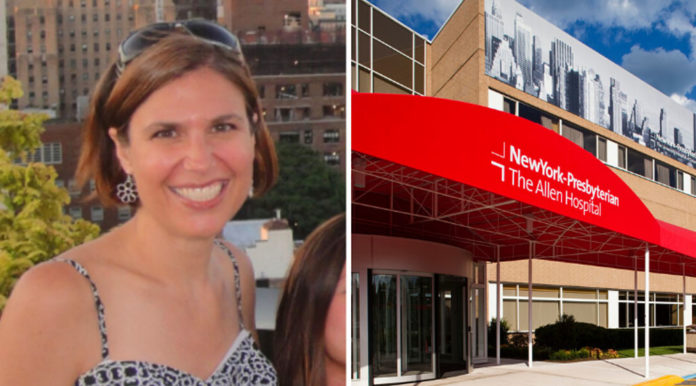
“She tried to do her job, and it killed her.”
In the latest tragic example of the horrendous burden that the coronavirus pandemic is having on medical workers, a top emergency room doctor in New York City died by suicide on Sunday.
Dr. Lorna M. Breen was the medial director of the NewYork-Presbyterian Allen Hospital. On Sunday, she died while staying with her family in Charlottesville, Virginia, her father told New York Times.
Her father, Dr. Philip C. Breen, has some idea of why she may have taken her own life—and the devastating scenes of the death and suffering among COVID-19 patients which she had described in recent weeks were a likely contributing factor.
“She tried to do her job, and it killed her,” he told the paper.
While she herself had contracted SARS-CoV-2—the virus that causes the disease COVID-19—she attempted to return to work after recuperating for a week and a half. The hospital quickly sent her home before Breen’s family convinced her to stay with them in Charlottesville, her father said.
Lorna Breen apparently had no history of mental illness, her father said. However, in a recent conversation between the two she seemed detached, raising her dad’s worries that something was wrong.
She also recounted nightmarish scenes of “an onslaught” of patients dying just as soon as their ambulances arrived. Philip Breen explained:
“She was truly in the trenches of the front line.
“Make sure she’s praised as a hero, because she was. She’s a casualty just as much as anyone else who has died.”
In an email to hospital staffers sent Sunday night, head of emergency medical services at the NewYork-Presbyterian hospital system Dr. Angela Mills said:
“A death presents us with many questions that we may not be able to answer.”
The outbreak of the coronavirus pandemic has taken a tremendous toll on doctors and nurses around the world in the months since it first emerged in Wuhan, China, both in terms of pushing the capacity of hospitals toward or past the breaking point or doing the same to medical workers’ mental health limits.
Doctors and nurses across the U.S. have admitted that while the COVID-19 crisis has helped them feel more dedicated than ever to their profession and their vows to protect patients, it has caused a mental health crisis for medical workers.
It has also accentuated frustrations over a lack of personal protective gear, a fear of spreading the disease to their families, and a nagging sense that they are unable to do enough for patients.
Negative thoughts and feelings of despondency have also been enhanced by extremely long and exhausting shifts at the hospital and a deep sadness over the deaths that they have had to witness.
Italian hospital doctors’ union leader Carlo Palermo told Associated Press also confirmed that two nurses had committed suicide due to the emotional trauma resulting from their front-line work. Fighting back tears, Palermo said:
It’s [an] indescribable condition of stress.
“I can understand those who look death in the eye every day, who are on the front lines, who work with someone who maybe is infected, then a few days later you see him in the ICU or die.”
The NewYork-Presbyterian Allen is a 200-bed hospital located in Manhattan that has had as many as 170 COVID-19 patients at a time. There were 59 patient deaths at the hospital as of April 7, according to an internal document acquired by The Times.
According to the most recent data, there have been roughly 160,000 confirmed cases of SARS-CoV-2 in New York City’s five boroughs and 12,287 deaths. For weeks now, the city has been the epicenter of the outbreak sweeping across the United States.




